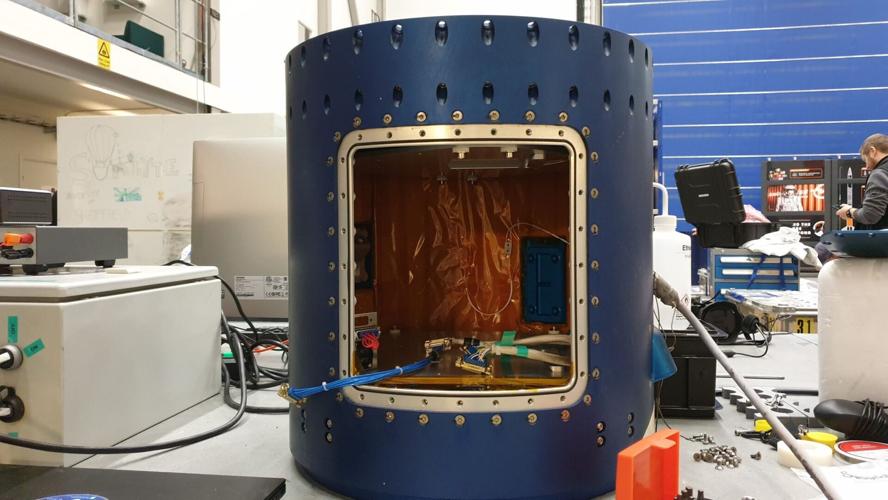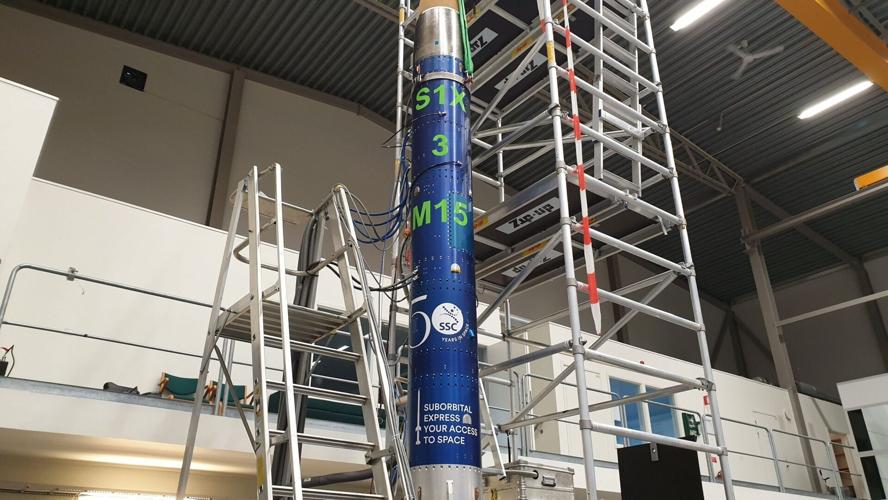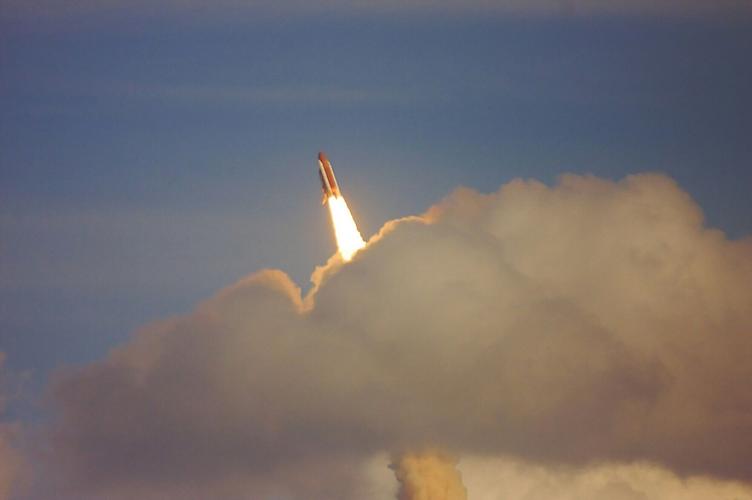
Rocket section for rideshare payloads. (Gail Iles / RMIT University via SWNS)
By Stephen Beech
Microbes essential for human health can survive the extreme forces of space launch, reveals new research.
The world-first rocket test proved bacteria can endure blast-off and re-entry unharmed.
There are plans to send crews to Mars within decades.
But sustaining life on the red planet would be more difficult if important bacteria die during the flight.
Now an Australian-led study has found the spores of Bacilus subtilis - a bacterium essential for human health - can survive rapid acceleration, short-duration microgravity and rapid deceleration.
The spores of bacteria were launched high into the sky, then studied once their rocket fell back to Earth, in what is believed to be the first study of its kind in real conditions outside a lab.
Study co-author Professor Elena Ivanova says the findings add to the overall understanding of how living organisms respond to the unique environment of space.
Ivanova, of RMIT University in Melbourne, Australia, said: “Our research showed an important type of bacteria for our health can withstand rapid gravity changes, acceleration and deceleration.

Study co-author Professor Elena Ivanova. (RMIT University via SWNS)
“It’s broadened our understanding on the effects of long-term spaceflight on microorganisms that live in our bodies and keep us healthy.
“This means we can design better life support systems for astronauts to keep them healthy during long missions.
“Researchers and pharmaceutical companies can also use this data to conduct innovative life science experiments in microgravity.”
Although humans have been living on board space stations since the 1970s, she explained that bacteria such as B. subtilis are important to sustain healthy human life over decades, which will be needed for a future Mars colony.
B. subtilis bacteria contribute towards supporting the immune system, gut health and blood circulation.
For the study, published in the journal npj Microgravity, researchers blasted the spores to the edge of space in a sounding rocket subjected to several extreme conditions in a short period, including rapid acceleration, deceleration and very low gravity.

The payload section of the Suborbital Express 3 - M15 59 sounding rocket on the assembly pad. (Gail Iles / RMIT University via SWNS)
During the launch, the rocket experienced a maximum acceleration of about 13 g – 13 times the force of Earth's gravity – during the second stage burn phase.
After reaching an altitude of about 260 kilometres (161.5miles), the main engine cut off, initiating a period of weightlessness called microgravity that lasted for more than six minutes.
Upon re-entry into the Earth's atmosphere, the payload experienced extreme deceleration, with forces up to 30 g while spinning about 220 times per second.
After the flight, spores showed no changes in their ability to grow and their structure stayed the same, indicating a key microbe for human health can survive the journey.
RMIT space science expert Professor Gail Iles says understanding how microorganisms survive in space is "crucial" for the future of interplanetary travel.
She said: "This research enhances our understanding of how life can endure harsh conditions, providing valuable insights for future missions to Mars and beyond.
“By ensuring these microbes can endure high acceleration, near-weightlessness and rapid deceleration, we can better support astronauts' health and develop sustainable life support systems.”

RMIT space science expert Professor Gail Iles. (RMIT University via SWNS)
The research team say understanding the limits of microbial survival could lead to innovations in biotechnology.
Ivanova said: “Potential applications of this research extend far beyond space exploration.
“They include developing new antibacterial treatments and enhancing our ability to combat antibiotic-resistant bacteria.
“We’re a while away from anything like that, but now we have a baseline to guide future research.”
Iles says the findings add to overall understanding of how living organisms respond to the unique environment of space.
She added: “Microbes play essential roles in sustaining human health and environmental sustainability, so they’re an essential factor of any long-term space mission.
“Broader knowledge of microbial resilience in harsh environments could also open new possibilities for discovering life on other planets.

Kurt Cotoaga
“It could guide the development of more effective life-detection missions, helping us to identify and study microbial life forms that could thrive in environments previously thought to be uninhabitable."
RMIT worked with space tech company ResearchSat and drug delivery firm Numedico Technologies on the research, which involved transporting the bacteria from Melbourne to Sweden.
The launch was hosted by the Swedish Space Corporation and featured a custom 3D-printed microtube holder developed by ResearchSat and RMIT.
The sample was prepared and later analysed at the RMIT Microscopy and Microanalysis Facility, which has state-of-the-art electron microscopes, surface analysis and microanalysis instrumentation.
The researchers are now seeking further funding to enable work in microgravity, which they say could lead to improvements in drug delivery.

























(0) comments
Welcome to the discussion.
Log In
Keep it Clean. Please avoid obscene, vulgar, lewd, racist or sexually-oriented language.
PLEASE TURN OFF YOUR CAPS LOCK.
Don't Threaten. Threats of harming another person will not be tolerated.
Be Truthful. Don't knowingly lie about anyone or anything.
Be Nice. No racism, sexism or any sort of -ism that is degrading to another person.
Be Proactive. Use the 'Report' link on each comment to let us know of abusive posts.
Share with Us. We'd love to hear eyewitness accounts, the history behind an article.